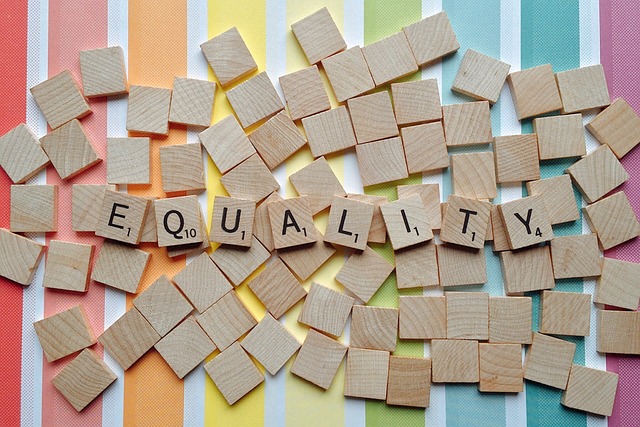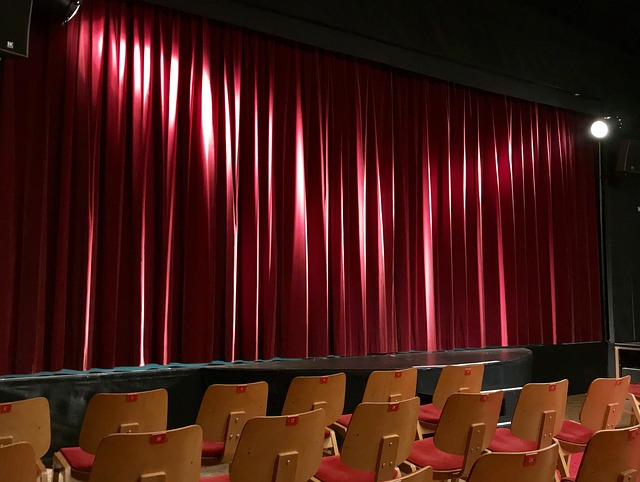
Equality in Reading Promotes Inclusive Leisure for Everyone
Leisure time is a precious commodity that offers respite from the demands of daily life. While modern society is saturated with digital entertainment, the humble act of reading remains a timeless way to relax, learn, and connect with others. Yet the benefits of reading are not automatically shared by all; access to books, suitable reading environments, and supportive communities can be unevenly distributed. The principle of equality—ensuring everyone has fair opportunities—must guide how we integrate reading into leisure activities. When equality permeates library programs, community reading groups, and digital platforms, leisure becomes a more inclusive space where people from all walks of life can unwind, explore ideas, and feel part of a shared cultural conversation.
Why Reading Is a Cornerstone of Inclusive Leisure
Reading occupies a unique position among leisure pursuits. Unlike competitive sports or high-tech games, books do not require physical prowess, specialized equipment, or significant financial outlay. A good story can be enjoyed in a quiet corner of a park, at a coffee shop, or curled up on a couch. Because books are portable and relatively inexpensive, they lower barriers that might otherwise exclude certain groups. However, the true inclusive power of reading emerges only when people are encouraged to share their experiences, discuss themes, and learn together. This collaborative dimension turns a solitary activity into a social one, inviting participants to engage in dialogue that nurtures empathy and mutual understanding. In such a setting, equality is not merely a moral ideal but a practical necessity that ensures everyone can participate meaningfully.
The Role of Equality in Shared Library Spaces
Libraries have long been public sanctuaries where knowledge and leisure converge. For equality to flourish within these spaces, design and policy must consider diverse needs. Accessible shelving, wheelchair-friendly seating, and tactile or audio book options broaden participation. When library staff receive training on inclusive practices—such as recognizing cultural sensitivities, facilitating discussion groups in multiple languages, and providing quiet zones for neurodiverse patrons—the environment becomes more welcoming. Moreover, community outreach programs that invite local authors, storytellers, and educators can transform libraries into living classrooms where all voices are heard. By embedding equality into the core of library operations, leisure through reading becomes an inclusive experience that extends beyond the walls of the building.
Programs That Promote Equality Through Reading
Targeted programs are pivotal for cultivating equality. Storytime sessions for young children often include books that feature diverse protagonists, offering early exposure to a range of cultures. Adult book clubs that rotate themes—such as environmental justice, immigrant narratives, or LGBTQ+ histories—invite members to explore perspectives beyond their own. Some libraries partner with community centers to host “Reading Circles,” where participants discuss a single book over several weeks, fostering dialogue across generations. Another effective model is the “Borrower Buddy” initiative, pairing seasoned readers with newcomers to guide them in selecting books and navigating library systems. These programs embody equality by ensuring that every participant, regardless of age, background, or reading level, can contribute to and benefit from shared leisure moments.
Digital Platforms and Equality in Free Time
The digital age has expanded the reach of reading, yet it has introduced new inequities. Access to e‑books, audiobooks, and online discussion forums depends on reliable internet, appropriate devices, and digital literacy. To counteract these disparities, many libraries now offer free Wi‑Fi, loanable tablets, and digital literacy workshops. Mobile apps that support adjustable text sizes, dyslexic fonts, or translation features further remove barriers. Online reading communities—such as moderated forums, social media book clubs, or live-streamed author talks—provide spaces where geographic boundaries are irrelevant, allowing people from remote or underserved areas to engage in the same leisure activity. By prioritizing accessibility in digital offerings, we extend equality’s reach to all leisure seekers.
Challenges and Solutions to Achieving Equality in Reading Leisure
Despite progress, obstacles persist. Budget constraints can limit the availability of diverse books or the maintenance of inclusive facilities. Cultural mistrust or past negative experiences with public institutions may discourage some groups from participating. Additionally, the sheer volume of available reading material can overwhelm those with limited time or reading confidence. Practical solutions involve community-driven advocacy to secure funding, partnerships with publishers to diversify collections, and mentorship programs that pair confident readers with newcomers. Libraries can also curate “Starter Packs” of books on inclusive topics, accompanied by guided discussion questions to help readers engage actively. Addressing these challenges head-on strengthens the fabric of equality within leisure reading.
Personal Stories Illustrating Equality in Reading Leisure
“When the library introduced a reading group that focused on immigrant stories, I felt seen and heard for the first time in years. We shared our own histories and realized how similar our struggles were,” says Maria, a community organizer.
“The audiobook service let me enjoy literature during my commute, something I couldn’t do with a physical book. The narrator’s clear voice helped me understand complex plots,” shares James, a visually impaired student.
“Joining the monthly book club changed my perspective on climate change. Hearing different viewpoints from neighbors broadened my understanding,” explains Aisha, a local teacher.
These testimonies underscore how equality-driven initiatives transform leisure activities into shared, enriching experiences. They remind us that the simple act of reading, when thoughtfully integrated into community life, can foster connection, learning, and empowerment across diverse populations.
Conclusion: A Call for Inclusive Leisure Through Reading
Equality in reading is more than an abstract aspiration; it is a concrete path toward inclusive leisure. By designing library spaces that welcome all, launching programs that celebrate diversity, and ensuring digital platforms are accessible, we can guarantee that every person can take advantage of the restorative power of books. As individuals, we can support these efforts by volunteering, advocating for equitable funding, or simply recommending inclusive titles to friends. As societies, we must recognize that leisure is a democratic right—a right that, when safeguarded, enriches every member of the community. Let us commit to making reading an open, equitable, and joyful part of everyone’s free time, so that leisure becomes a shared celebration of human experience for all.


